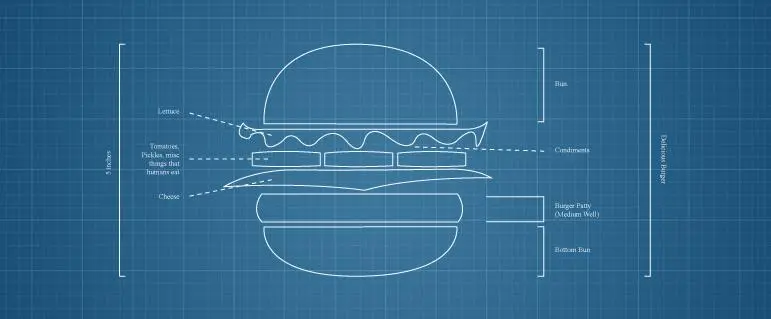Robots Are Taking Over the Fast Food Industry and Why This is Cool
Would you consider eating a hamburger that has been made by a robot? I hadn’t given much thought to this until the other day when a rather disturbing article appeared on my Facebook newsfeed. The story said that a McDonald’s employee, a young man, had been arrested for contaminating Big Mac sauce with his bodily fluids. Horrified, I quickly went to Snopes and was relieved to find that the story was a hoax… but I will be honest, the idea of having a burger made on the whims of a moody high school teenager suddenly seemed way less appealing.
The reality is that if a machine can create a custom burger that matches or exceeds the qualities of the human product, the machine will eventually get the job. Without something to prevent it, this kind of change is inevitable.
Enter the heralded arrival of the world’s first burger making robot created by robotic startup Momentum Machines. This robot, designed to create 360 “made to order” burgers per hour could easily revolutionize the fast food industry.
Founded in 2009 in San Francisco, Momentum Machines calls itself a “small collective of foodies and engineers with decades of robotics and restaurant experience” who have worked hard to put out a robot who can make a burger every 10 seconds. This robot apparently does everything from slicing the tomatoes, cooking the hamburger and adorning said meat patty with a proper pickle and ketchup. Momentum claims their automated manufacturing systems are more sanitary, more consistent and more productive than a human work force. But will it taste as good?
The public can’t comment yet because they have not opened. But when they do open, Momentum promises that the burgers will be “fresh-ground and grilled to order” and will even be “accented by an infinitely personalizable variety of fresh produce, seasonings, and sauces.”
The concern here is of course a potential loss of jobs for 3.6 million fast food employees in this country. But the company has taken a public position on helping those who may face unemployment to consider other lines of work within this industry – engineering and robotic technology stand in the forefront of a bright future. The issue at hand is the skills gap, not the lack of jobs. So education is a critical component of this revolution.
No doubt, this technology is a disruptive force in the way the fast food ecosystem. With a huge opportunity staring them in the face, Momentum Machines has attracted the attention of engineers from Berkeley, Stanford, UCSB, and USC along with those with experience from Tesla and NASA and even culinary experts including the former Head of R&D at Fat Duck.
But in the face of enormous job loss comes a technological revolution that could spur job growth in ways we haven’t even imagined yet. Where one door closes, another one opens.
Some will try to resist this change – to the detriment of themselves and to the detriment of society.
We do not need to slow down the evolution of machines, we need to speed up the evolution of humanity. Failing that, we will be unable to enjoy the amazing promise that the future holds for all of us.

